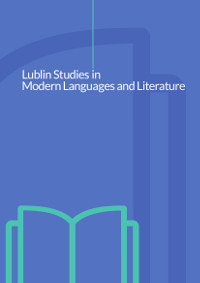An Investigation of ELT Student Teachers’ Dictionary Ownership and Preferences
An Investigation of ELT Student Teachers’ Dictionary Ownership and Preferences
Author(s): Mustafa ŞevikSubject(s): Foreign languages learning
Published by: Wydawnictwo Naukowe Uniwersytetu Marii Curie-Sklodowskiej
Keywords: English as a foreign language; university ELT department; dictionary ownership; dictionary preferences
Summary/Abstract: Alongside with many societal changes, technology has also started to change the teaching and learning of EFL especially since the turn of the millennium. Multimedia-based and audiovisual materials are now easily accessible and available for both teachers and learners of EFL. Recent research demonstrates that EFL learner ownership and preferences about dictionaries seem to have taken its share from these technological innovations and influences. The increasing number of research on learners’ dictionary ownership and preferences has tried to explore this rather recent situation and has mainly resulted in the main finding that paper dictionaries are losing their long-lasting popularity and that multimedia-based dictionaries are becoming popular among EFL learners. This new situation that has pedagogical and curricular applications necessitates research on ELT student teachers’ dictionary ownership and preferences in Turkey, especially considering that studies into this area are almost non-existent in Turkish ELT departments. Therefore, the primary aim of this study is to explore ELT student teachers’ dictionary ownership and preferences. With this aim this paper reports on a descriptive study about dictionary ownership and preferences of 186 ELT student teachers at Mehmet Akif Ersoy University. The results demonstrate that student teachers strongly believe that a language learner needs a dictionary; that paper dictionaries are mostly owned but multimedia based dictionaries are mostly preferred; that paper dictionaries are difficult to carry, expensive and time consuming; that they use their dictionaries mostly at home and secondly in class; and that their main reason for using the dictionary is to learn the meaning of vocabulary but not spelling or pronunciation.
Journal: Lublin Studies in Modern Languages and Literature
- Issue Year: 41/2017
- Issue No: 1
- Page Range: 214-232
- Page Count: 19
- Language: English

